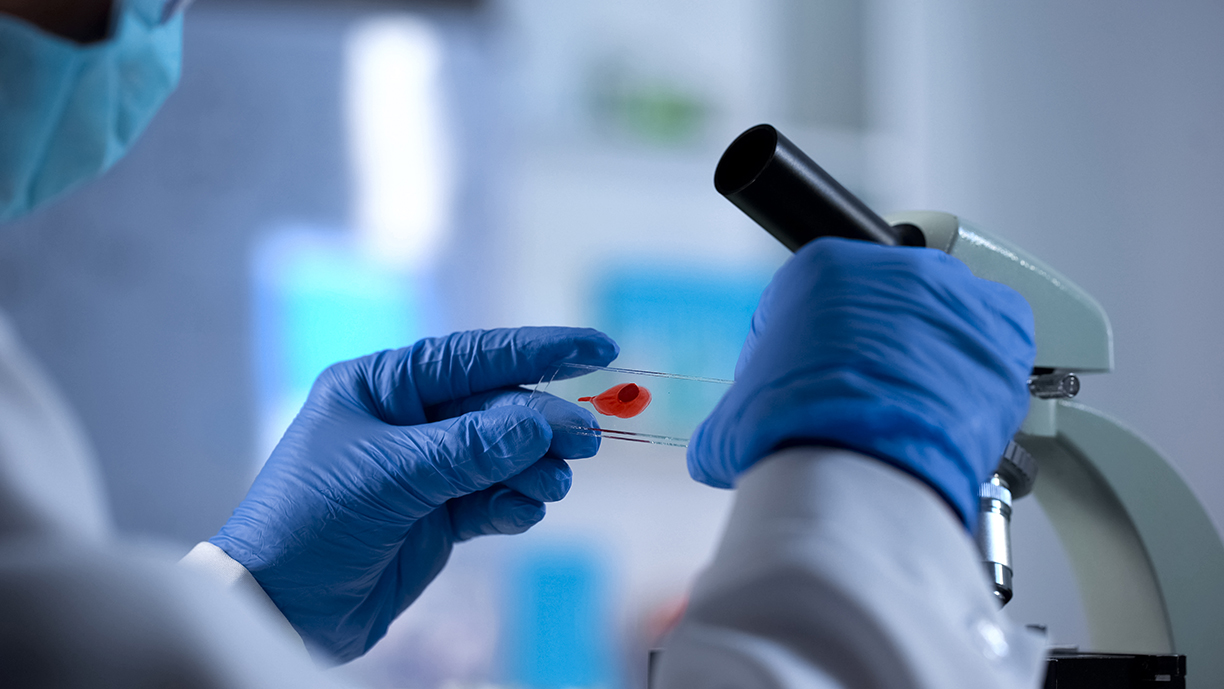EU grant for Coronavirus Research
Dozens of research groups around the world are racing to create a vaccine.
-
 The Department of Molecular Biosciences, in cooperation with other universities in Europe, works to develop a new type of antiviral treatment with effect against the new corona virus, but also against other viruses that attack the upper airways, such as the RS virus.
The Department of Molecular Biosciences, in cooperation with other universities in Europe, works to develop a new type of antiviral treatment with effect against the new corona virus, but also against other viruses that attack the upper airways, such as the RS virus. -
-
Dozens of research groups around the world are already racing to create a vaccine against COVID-19. Stockholm University has been granted research funding from the EU to develop antiviral treatment for the new coronavirus. The project is led by Anna-Lena Spetz, professor of immunology at the Department of Molecular Biosciences, The Wenner-Gren Institute*.
“By developing a broad-spectrum antiviral treatment, we are simultaneously building preparedness for future epidemics, when the next animal-human viral transmission occurs,” says Spetz.
In January, the European Commission announced research grants to meet the great need for COVID-19 research on vaccine development, treatment and diagnostics. Due to the urgent need for new knowledge, a total EUR 47.5 million ($52 million) has been released, and 17 projects with 136 research teams have now been selected. With these funds, research teams in Germany, Denmark, France and Sweden will work together to test the effect of drug candidates on the new coronavirus SARS-CoV-2, which produces the disease COVID-19, in test tubes and in animal models. -
 The Fight-nCoV project includes Stockholm University.
The Fight-nCoV project includes Stockholm University. -
-
Effective treatment
The Fight-nCoV project, which includes http://www.su.se/english/education|Stockholm University, will receive $3 million to develop a new type of antiviral treatment with effect against the new corona virus, but also against other viruses that attack the upper airways, such as the RS virus.
“Our solution with broad-spectrum antiviral treatment has the potential to be used against airway viruses where we currently lack effective treatment,” says Spetz.
Fight-nCoV, which is expected to last two years, is based on several years of previous research. Key persons in collaboration are Spetz (Stockholm University), Roger LeGrand, (CEA, France), Urban Höglund, (Adlego Biomedical, Sweden), Jan Münch (Ulm University, Germany), Alexander N. Zelikin (Aarhus University, Denmark) andThomas Schrader (University of Duisburg-Essen, Germany). -
Strengthening Europe’s defenses
Some of the world’s leading experts on infectious disease prevention and control are in Stockholm. The main European agency to fight infectious disease, ECDC, the European Centre for Disease Prevention and Control is located in Frösunda, just north of Stockholm. The EU agency is aimed at strengthening Europe’s defenses against infectious diseases. Its mission is to identify, assess and communicate current and emerging threats to human health posed by infectious diseases. It works in partnership with every national health protection body across Europe. By working with experts throughout Europe, ECDC pools Europe’s health knowledge to develop authoritative scientific opinions about the risks posed by current and emerging infectious diseases. It collects, collates, evaluates and disseminates relevant scientific and technical data, and provides scientific opinions and scientific and technical assistance to member states, community agencies and international organizations. It’s about coordinating efforts, exchanging information and expertise along with best practices. For more info, see www.ecdc.europa.eu -
*The Department of Molecular Biosciences, The Wenner-Gren Institute (MBW) unites more than 30 independent research groups. Its mission is to carry out internationally recognized research and teaching in infection- and immuno-biology, integrative biology and molecular cell biology. MBW is located in the Arrhenius Laboratories on the northeastern end of Stockholm University’s Frescati Campus. For more info, see www.su.se/mbw
-
-
